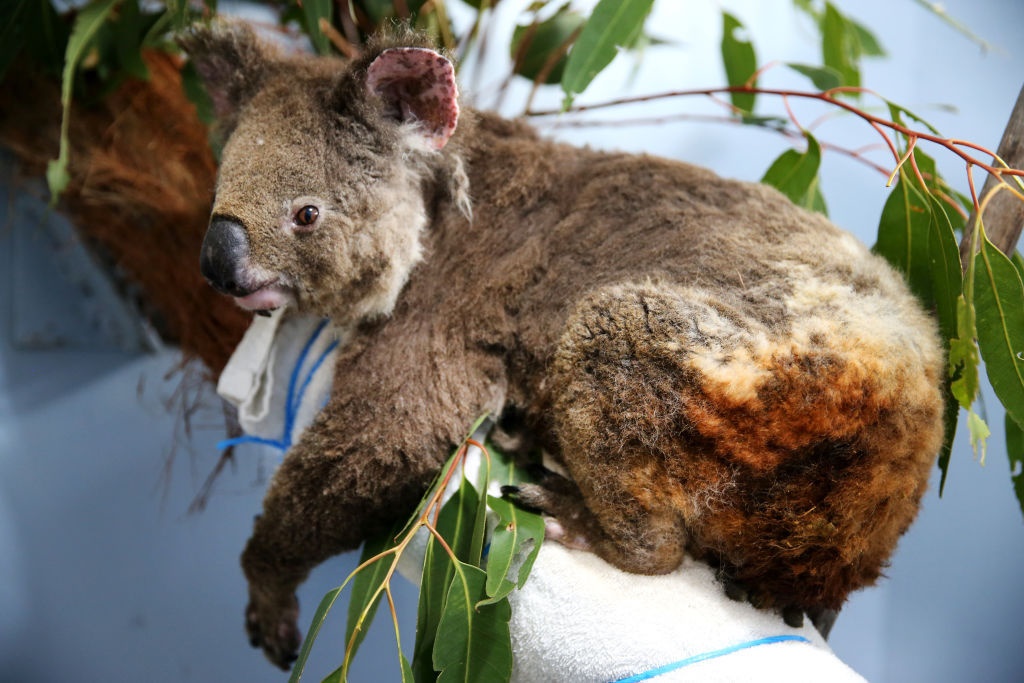Kelly McLaughlin , Business Insider US | Jan 02, 2020, 09:43 PM

Female koala Anwen recovering from burns at The Port Macquarie Koala Hospital on November 29, 2019 in Port Macquarie, Australia. (Photo by Nathan Edwards/Getty Images)
- Ecologists at the University of Sydney told News.com.au that an estimated 480 million mammals, birds, and reptiles, have died in the bushfires sweeping Australia.
- thousand of the animals deaths are believed to be koalas, The Independent reported. Federal environment minister Sussan Ley told ABC Radio on Friday that up to 30% of koalas in New South Wales have been killed by the fires.
- As of Thursday morning, more than 130 fires were burning in New South Wales and Victoria. The fires have razed more than 9.9 million acres across five states.
- At least 18 people have died as a result of the bushfires. Some 1,400 homes have been destroyed.
Nearly half a billion animals are believed to be dead in the bushfires still spreading across Australia.
Ecologists at the University of Sydney told News.com.au that an estimated 480 million mammals, birds, and reptiles have died in the bushfires, which have been burning across Australia since September. Eight thousand of the animals deaths are believed to be koalas, The Independent reported.
As of Thursday morning, more than 130 fires were burning in New South Wales and Victoria. The fires have razed more than 9.9 million acres across five states. At least 18 people have died as a result of the bushfires. Some 1,400 homes have been destroyed.
Animals living in the regions include koalas, kangaroos, wallabies, possums, wombats, and echidnas.
Tracy Burgess, a volunteer at Wildlife Information, Rescue and Education Services, told Reuters that rescuers aren't receiving as many animal patients as expected, which is cause for concern.
"Our concern is that they don't come into care because they're not there anymore, basically," she said.
Rescuers across the country have shared videos and photos of burned and dehydrated animals being cared for and fed by local residents.
Federal environment minister Sussan Ley told ABC Radio on Friday that up to 30% of koalas in New South Wales have been killed by the fires.
Nature Conservation Council ecologist Mark Graham told parliament in December that koalas can't move fast enough to escape the fires. Koalas also eat leaves from eucalyptus trees, which are highly flammable.
"The fires have burned so hot and so fast that there has been significant mortality of animals in the trees, but there is such a big area now that is still on fire and still burning that we will probably never find the bodies," he said, according to The Independent.
Food and fuel are running out in remote areas of southeastern Australia as the fires rage on. Weather conditions are expected to worsen through the week.


